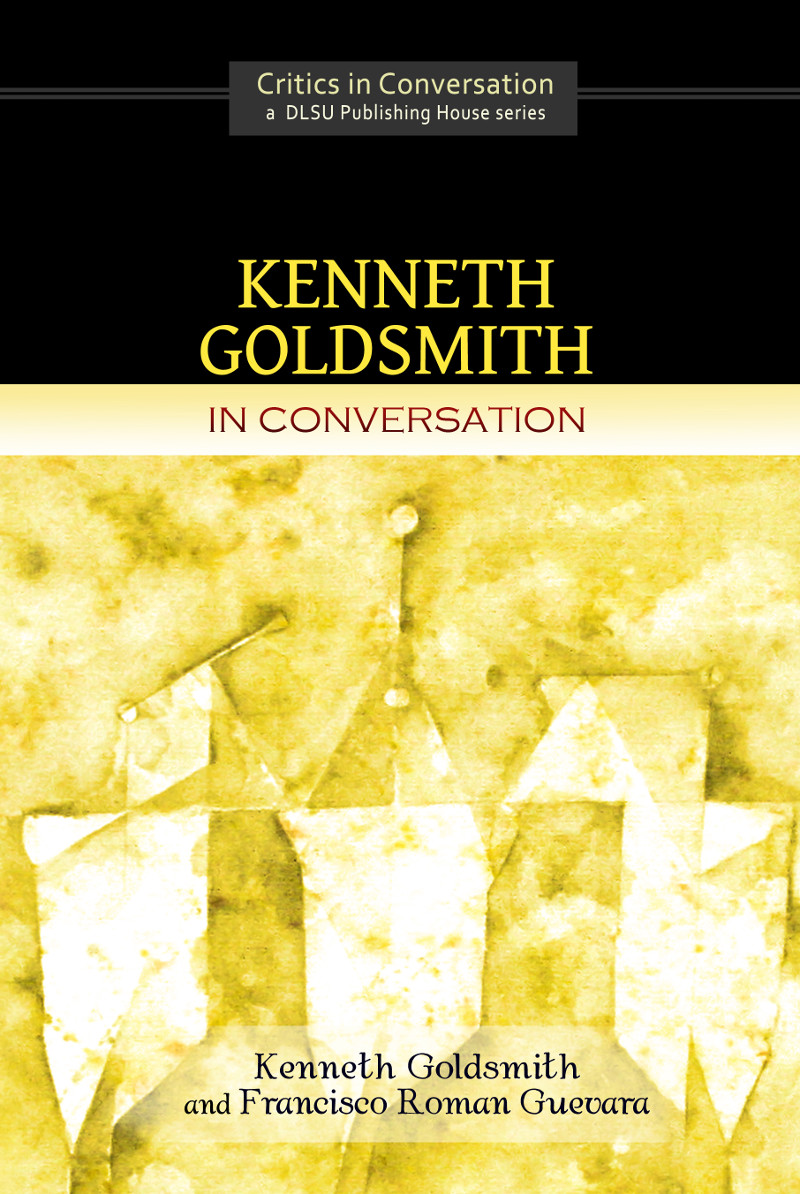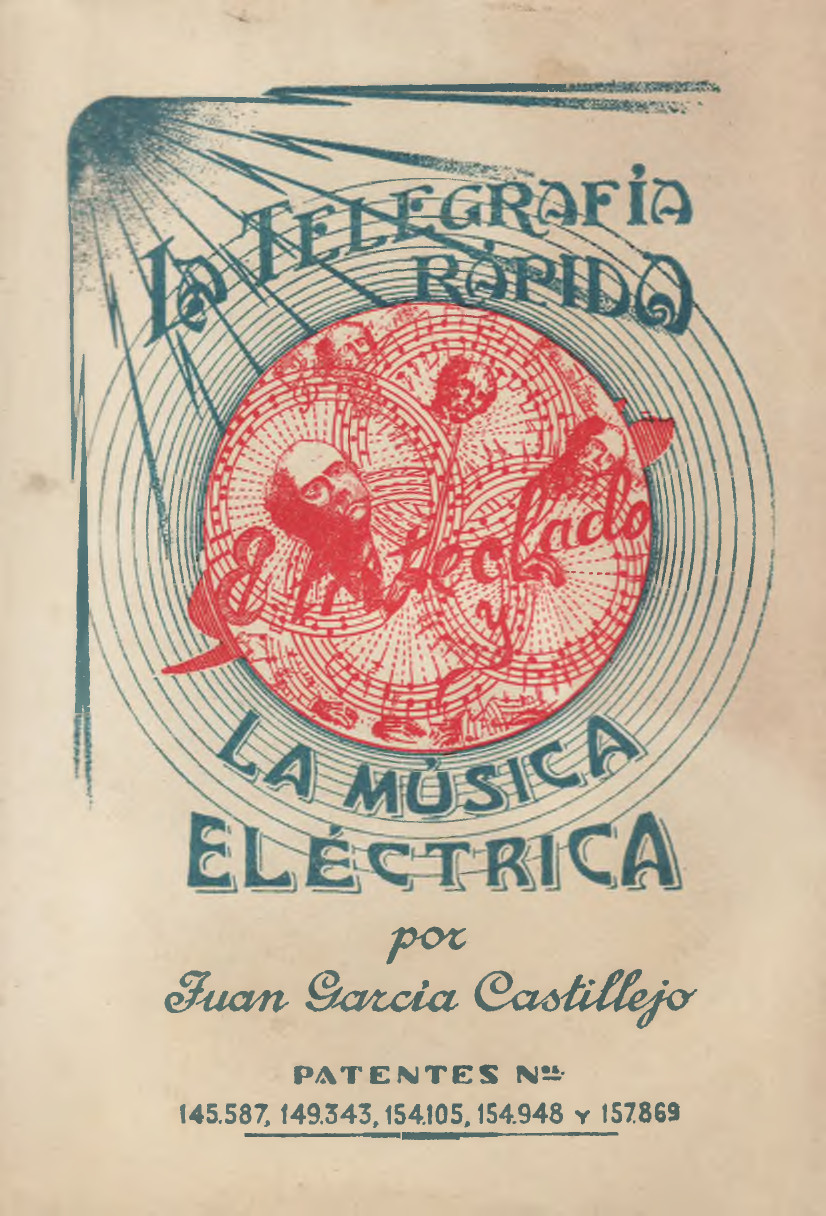Kenneth Goldsmith in Conversation (2014)
Filed under booklet | Tags: · aesthetics, avant-garde, conceptual writing, literature, poetry, uncreative writing, writing

“What is uncreative writing? What can writing learn from visual art? How does one write through art and culture? What is language and how should one speak (of) it in this digital age? How have the current technological developments shaped the contemporary scene and sense of poetics, aesthetics, and poetry pedagogy? What is conceptual writing and its relation to the international avant-garde movement? And after all, what is poetry? These are some of the questions addressed by Kenneth Goldsmith in the interview with Francisco Roman Guevara. This discussion – candid and provocative – is a helpful introduction to the ideas of a most significant “writerly” voice in the contemporary space of literary and cultural studies.”
With Francisco Roman Guevara
Publisher De La Salle University Publishing House, Manila, 2014
Critics in Conversation series
ISBN 9789715555968
50 pages
Juan García Castillejo: Fast Telegraphy, the Trikeyboard and Electric Music (1944) [Spanish]
Filed under book | Tags: · electricity, library, music, sound, speech, telegraphy, typewriter

In this curious book, a Spanish priest proposes to combine the developments in telegraphy, teleprinter keyboards, typewriters and “electric music”. He describes how in the 1930s he built and perfected an ”electro-composition device”, equipped with lamps, transformers, capacitors, resistors, dozens of speakers and several engines.
He intended to cause the perforations in the telegraphic tape to be automatically selected by different engines that would trigger the various sound tracks recorded, and thus cause each of the “books on the perforated tape” to become an “audio book”. The purpose behind this idea was to enable the future creation of “spoken libraries” and “speech archives” in which the item being searched for could be instantly found. He performed practical experiments by means of a radio station where he managed to make the radio transmitter “speak automatically”, repeatedly broadcasting random announcements without anyone being present. He also intended this “talking device” to become an electric orchestra that composed “a music of chance configurations that was subjected to a number of panels governing its harmonic possibilities”, as well as bearing in mind the multiple possibilities that it offered in the field of improvisation.
Castillejo wrote several essays for a humour section of a radio magazine, which would imply that a concert was going to be broadcasted, when in fact it was the electro-composer instrument. In 1933, the director of Unión Radio, in Valencia paid him a visit him in order to evaluate how feasible its implementation in the radio station would be, although, due to the cost and difficulty in “providing a constant voltage for an electric demand that varied according to the use of a greater or lesser number of musical notes”, the project was shelved and fell into oblivion, and, with it, the contribution of the author. (from a summary by Miguel Molina Alarcón, 2006, pp 16-17)
Since 2008, Premio Cura Castillejo, a major Spanish award for sound art and experimental music is named in his honor.
La telegrafía rápida: el triteclado y la música eléctrica
Published in Valencia, 1944
347 pages
via Anna / Ràdio Web MACBA, via Ccapitalia.net
Commentary (Miguel Molina Alarcón, 2006, in English, pp 16-17)
Commentary (Miguel Molina Alarcón, 2006, in Spanish)
Commentary (Adolfo García Yagüe, 2014, in Spanish)
Tribute concert announcement (2013)
Julia Vaingurt: Wonderlands of the Avant-Garde: Technology and the Arts in Russia of the 1920s (2013)
Filed under book | Tags: · 1920s, aesthetics, architecture, art, art history, avant-garde, biomechanics, body, cinema, communism, constructivism, design, literature, machine, politics, russia, science fiction, sexuality, socialism, soviet union, technē, technology, theatre

“In postrevolutionary Russia, as the Soviet government was initiating a program of rapid industrialization, avant-garde artists declared their intent to serve the nascent state and to transform life in accordance with their aesthetic designs. In spite of their professed utilitarianism, however, most avant-gardists created works that can hardly be regarded as practical instruments of societal transformation. Exploring this paradox, Vaingurt claims that the artists’ investment of technology with aesthetics prevented their creations from being fully conscripted into the arsenal of political hegemony. The purposes of avant-garde technologies, she contends, are contemplative rather than constructive. Looking at Meyerhold’s theater, Tatlin’s and Khlebnikov’s architectural designs, Mayakovsky’s writings, and other works from the period, Vaingurt offers an innovative reading of an exceptionally complex moment in the formation of Soviet culture.”
Publisher Northwestern University Press, 2013
SRLT series
ISBN 0810128942, 9780810128941
322 pages
via Sorin
Review: Boris Dralyuk (NEP, 2013), Tim Harte (Slavic Review, 2014).
PDF (updated on 2022-11-12)
See also the science-fiction film Aelita, Queen of Mars, dir. Yakov Protazanov, 1924, 111 min, based on Tolstoy’s novel.
Comments (2)
